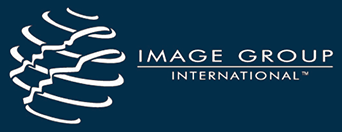Have you ever noticed that sometimes the things that hold us back are the most insignificant? Often it’s our mentality or fear of something that is obstructing us from achieving our goals and not the obstruction itself?
I’m reminded of the case of circus elephants, they are held in place by a light-weight chain attached to a steel spike in the ground. If you think about it logically, the spike in the ground is not strong enough to keep the elephant in place. It is the notion of being tied down that is stopping the elephant from breaking free. Trained from a very young age to be tied down, elephants and other animals quickly learn that once they are tied down they’re stuck there. No amount of pulling or tugging will set them free. As they grow older, they learn that no matter how hard they try, it’s impossible to break away. Eventually, they stop trying.
They are now mentally conditioned to believe that when they are tied or tethered, it’s impossible to escape, no matter how light the weight is or how it’s anchored. If they’re tied, they’re imprisoned.
From the day we are born, we are also conditioned by our trainers. We arrive in the world with no knowledge on anything, except our basic instincts. The rest is all learned from, or conditioned by, our trainers—our parents, siblings, friends, teachers, bosses, politicians, religious leaders, advertisements, media and television. They shape who we are. While some of this conditioning is designed to keep us safe, much of it stunts our personal growth. We become tethered by mental and emotional chains.
Our teachers tell us, “Only speak when you are spoken to.”
Our friends tell us, “Never leave a secure job.”
Our bosses tell us to work as a team when they are doing the opposite.
The politicians tell us, “To be fearful.”
Society says, “Pay off your mortgage and save for retirement.”
Just as the elephant is conditioned to believe he can’t escape, we can easily become “can’t do” people, restrained from success by repetitious negative conditioning.
This is important for trainers and coaches to know about their clients. If somebody is being held back by fear and anxiety, this may be because of a lifetime of conditioning or being trained to think in a certain way. These are often deeply, entrenched problems that will take time to reveal themselves and then to solve them. It’s important to identify the problems that cause these symptoms, it becomes much easier to knock out bad habits and ways of thinking once they’ve been isolated.
After that, it’s the role of the coach to target these specific problems to help bring out the best in the client. It can be quite easy for somebody to focus only on what is happening in their working life at the time and miss out on the big picture. How can I get the best out of my current profession? How can I learn more skills and prepare myself so that I’m ready to take that next level position when it reveals itself to me? Much like the elephant, people can become blinded and do not see the world, with the complete perception of what is going on around them.
A useful analogy for this scenario is the Displacement Approach. Imagine your client’s current habits and attitudes about life are like water in a bucket. The bucket’s contents have largely been filled by others—parents, teachers, peers or bosses. As the coach helps the client work through new skills and positive habits, each one is like a pebble being dropped into the bucket. As each new pebble falls into the bucket water is displaced; the water represents current negative habits and attitudes. Eventually, the pebbles will displace most of the water and the bucket will be full of the positive skills, attitudes and habits that will serve your client well throughout their life.
Coaches need to help facilitate the client to see their whole life instead of just their work life. Coaching can add that personal touch and help to remove barriers to expand the client’s life. How do you achieve this? The same way the elephant was trained: by repetitious learning and by continually practicing positive actions so that they become “can do” habits.
 Jon Michail and his team at Image Group International support coaches and their clients to achieve breakthrough results with new, disruptive ways to grow and monetize their personal and business brands. A veteran coach with a Who’s Who clientele, Jon is the CEO and Founder of Image Group International, an Australian-based corporate and personal brand image advisory and coaching organization that conducts transformational seminars and workshops in over four continents and is recognized as Australasia’s No. 1 Image coach.
Jon Michail and his team at Image Group International support coaches and their clients to achieve breakthrough results with new, disruptive ways to grow and monetize their personal and business brands. A veteran coach with a Who’s Who clientele, Jon is the CEO and Founder of Image Group International, an Australian-based corporate and personal brand image advisory and coaching organization that conducts transformational seminars and workshops in over four continents and is recognized as Australasia’s No. 1 Image coach.
Article for International Coaches Federation: http://coachfederation.org/blog/index.php/7629/
The views and opinions expressed in guest posts featured on this blog are those of the author and do not necessarily reflect the opinions and views of the International Coach Federation (ICF). The publication of a guest post on the ICF Blog does not equate to an ICF endorsement or guarantee of the products or services provided by the author.
